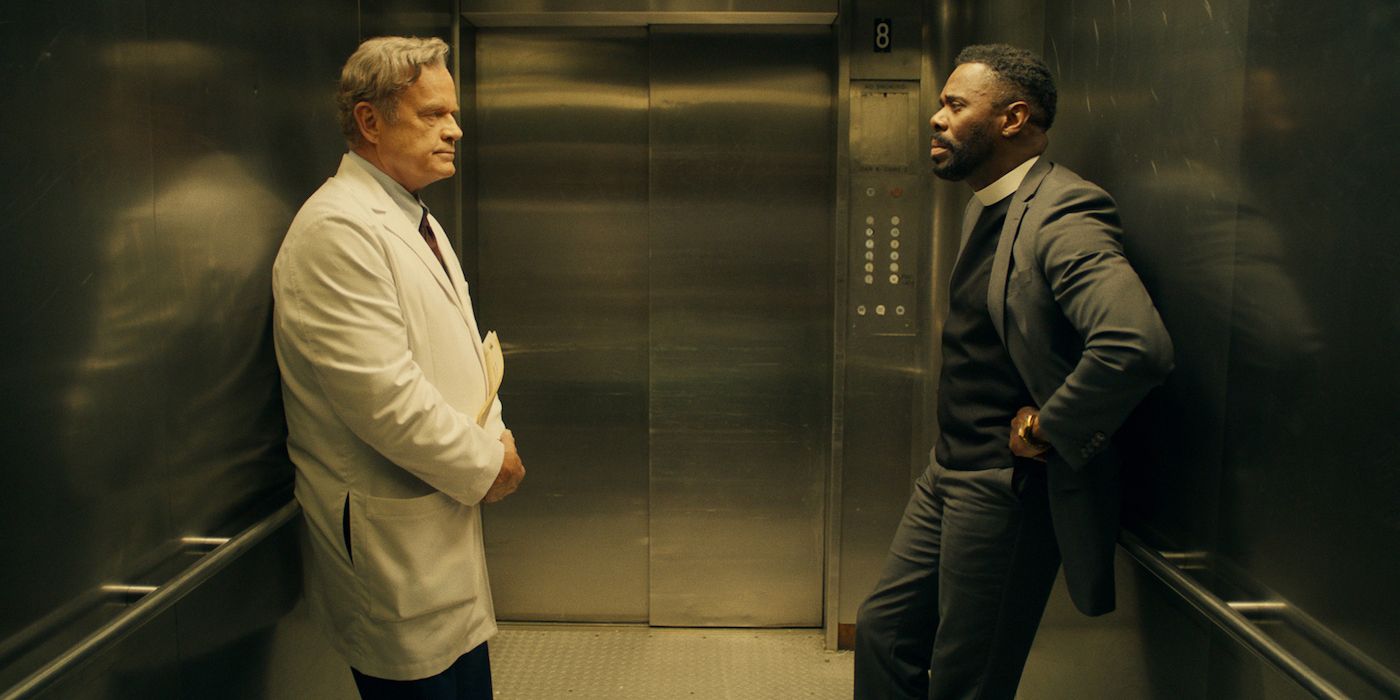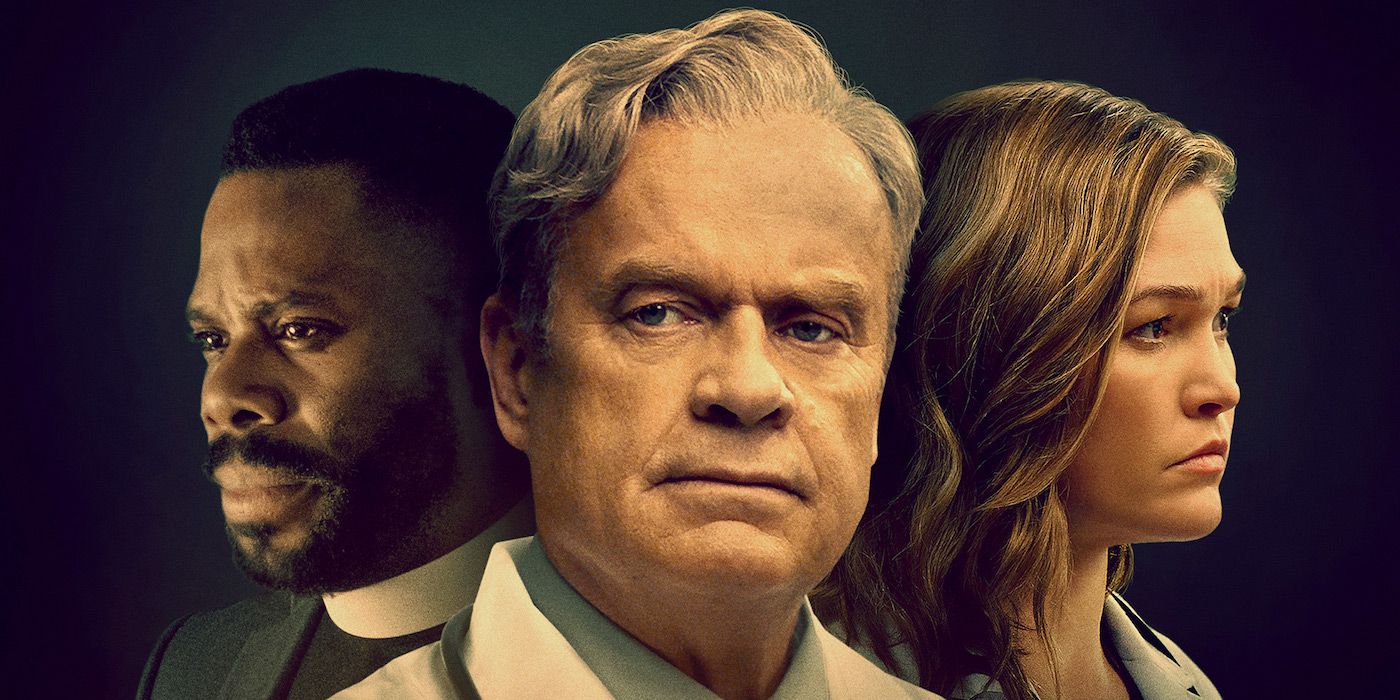People are like cars: they sometimes need replacement parts. Unfortunately, unlike the auto industry, we don't have the technology to develop replacement organs; they must be transplanted from other humans. There aren't enough hearts, lungs, and kidneys to take care of all the people who need them, and there's a high rate of rejection, where transplanted organs don't take to their new hosts. This complex and high-stakes world of organ transplants marks the setting for the new movie, The God Committee.
Based on Mark St. Germain's 2006 play, The God Committee follows a panel of doctors who have the impossible task of deciding who gets the privilege of receiving a donated heart. They must judge these human beings in such a way as to determine who gets to live and who has to die. The cast includes Kelsey Grammer, Julia Stiles, Colman Domingo, and Janeane Garofalo, all of whom have different ways of dealing with the pressures and stresses of their job, their duty to play God.
While promoting the release of The God Committee, writer/director Austin Stark and actor Colman Domingo spoke to Screen Rant about their work on the film, including the task of crafting a drama set around one of the darker corners of the medical field. Much to his credit, Domingo's character, Father Dunbar, is one of the more intriguing figures in the film, with a secret past and potentially murky motivations that influence his decisions, and his peers' perception of him, throughout the movie. They also discuss their experience showing the film to real-life medical professionals and the feedback they received from the frontline experts who really know what it's like to hold life itself in their hands.
The God Committee is out now in theaters and VOD.

I got to see this movie last night, and I thought it was so good. So dangerous in its way. Even a drop of power is such a corrupting influence. So my question for both of you is, how do you convey that onscreen without inciting crippling despair in the viewer. Because I know the movie does not wallow in that in the way it could have. Tell me about taking a sensitive and, in some ways, heartwarming approach to this really grim subject matter.
Austin Stark: I just think about, when I was writing the script and when we were making the film, I just think about what resonates with me and trying to be true to the material. If you have a compelling story, it's never gonna feel like you're forcing something, like you're trying to make it too heavy. Or if you're trying to add levity where levity is not due, that's not going to work, either. You just have to be true to the material. And always consider... It's not something that I consciously think about, I'm not, like, "I have to make this entertaining!" or whatever... It's just, I think there's a compelling story and I try to let it speak for itself.
Colman Domingo: And I wanted to add, what you said about making sure it doesn't leave the audience with despair... I watched the film twice. Each time, there's a moment that just kills me. It's not despair, actually. It's a moment that kills me because there's hope in that. It's the moment that the finger touches onto the heart, and the heart starts beating, and the anticipation of that. That is what it's all about. At the end of the day, it's all about trying to give that person that shot at life again. That's hopeful. I get very emotional about that. It's just a beautiful... Everything around that moment really just sends me. I think, oh, that's what the film is about.
Austin Stark: Yeah.
Colman Domingo: It's about all these decisions to get that heart pumping again, to get that blood going again.
Sure!
Austin Stark: The film is truly a love letter to doctors who toil away in an imperfect system. Just with that energy and coming and approaching it from that way, I think keeps it from getting bogged down. It does offer a hopeful message about what the future of transplantation holds.
And it's empathetic to the characters, too. Because it's not, like, "Who are you to have this responsibility?" It's like, who is anybody to get to make those calls, of who gets a chance and who doesn't? It wrestles with the weight of that on anyone's shoulder. I can't imagine. Colman, your character wears that very special collar. The movie suggests that it might be as much of a costume for the character as it is for you as an actor, without spoiling too much. Do you, as an actor, do you get to know exactly where that character is, or do you have to play it so that the audience can interpret it either way? Or do you know where that character's moral compass lies?
Colman Domingo: You do. You know where the character's moral compass lies, but you do want to make it feel ambiguous for the audience, as well. I think that's what's great about all the characters. They're all complicated. You're wondering, what are their motives? You know? That's extraordinarily human. For a character like him, I love that he's not just a priest and that's it. No, he's a priest who is also a disbarred attorney. That throws some questions in there about him, and about his motives. He's still got his stuff with him as well. But he's trying to unpack this to get to a pure decision with everyone. I think that's his intention, and that's part of his motor in the film.

Thank you both so much. It's been a pleasure to get to talk to both of you. The movie is fantastic. I have some friends who are in the medical field, and I want to show it to them.
Austin Stark: We got a great compliment last night. There was this doctor who was there on behalf of Donate Life America, and she said, after the film, "This was the most authentic medical film I've ever seen." That was the greatest compliment.
Nailed it!
Colman Domingo: Yeah.
Austin Stark: And somebody who works in the field...
Colman Domingo: That's the best review! That's it! That's the best review.
from ScreenRant - Feed https://ift.tt/2TGz4vf
 Reviewed by Riyad
on
July 08, 2021
Rating:
Reviewed by Riyad
on
July 08, 2021
Rating:

No comments: